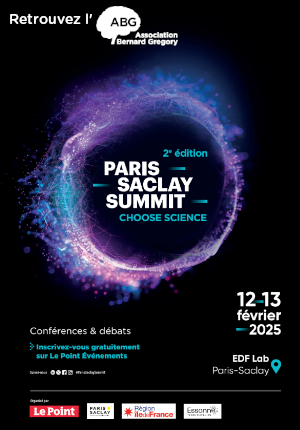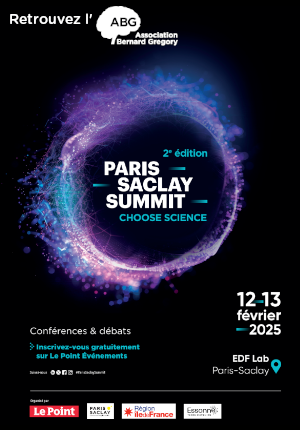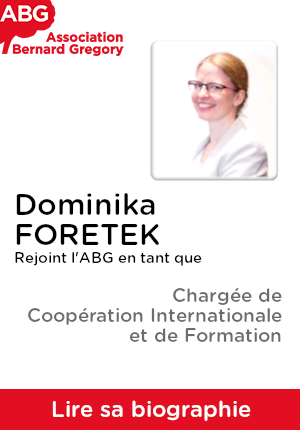Modelling of thermal plumes in and above urban geometries
| ABG-127480 | Master internship | 4 months | 570 |
| 2024-12-09 |

- Engineering sciences
- Digital
- Physics
Employer organisation
Website :
This internship work will be carried in the framework of collaboration between Ciel et Terre
International and the LOCIE Laboratory (UMR 5271 CNRS – Université Savoie Mont Blanc, Institut
National de l’Energie Solaire). The internship will take place at the LOCIE laboratory, 60 av.
Du lac Léman, Savoie Technolac, 73376 Le Bourget du Lac.
• USMB (Université Savoie Mont Blanc) - With 15,000 students, a rich and multidisciplinary
offer of academics and 18 internationally recognised research laboratories,Université Savoie
Mont Blanc (Chambéry) is a high-level research and multidisciplinary university which has
developed significant expertise in solar energy, energy efficiency in buildings, and modelling
and information sciences.
• CNRS (French National Centre for Scientific Research) is among the world’s leading research
institutions. Its scientists explore the living world, matter, the Universe, and the functioning
of human societies in order to meet the major challenges of today and tomorrow.
Internationally recognised for the excellence of its scientific research, the CNRS is a reference
in the world of research and development, as well as for the general public
• INES (National Institute of Solar Energy) is a global leader in R&D, expertise, and training
for advanced solar technologies, their integration into systems, and intelligent energy management.
Description
Urban areas are increasingly suffering from heat waves. These extreme events are expected to occur more frequently in the coming decades due to global warming. It is, therefore, essential to model and study urban behavior under such extreme conditions.
In this context, the present work is part of a project aimed at reproducing districts and cities at a reduced scale within a monitored experimental setup. This setup consists of a dome seven meters in diameter, where an urban atmosphere is generated in terms of temperature, radiation, and pollution. The goal is to study microclimatic conditions, including urban heat islands and natural convection patterns. However, before constructing this ambitious experimental setup, it is crucial to pre-design certain aspects of the experiment using numerical methods.
The objective of this research internship is to replicate both analytically and numerically the experimental apparatus and its immediate environment. The experimental setup will feature a small-scale district (approximately 1m x 1m) subjected to solar radiation (heat flux conditions). The focus will be on modeling the natural convection induced by the heat source and its interactions within the climatic enclosure.
To achieve this, the candidate will begin with a brief literature review. Following this, analytical and numerical studies will be conducted. Numerical models will be developed using either OpenFOAM or Ansys Fluent. From these studies, the characteristic temporal and spatial scales of the thermal stratification will be determined.
Profile
You are currently enrolled in a M2 or 5-year engineering degree programs , specializing in Fluid Mechanic,
Energy, and Thermal Sciences, or General Engineering, and are seeking a 4-6 months internship. Proficient
in English (reading and writing), you possess a genuine interest in scientific research. Your expertise
includes thermal and fluid sciences, and computational fluid mechanics.
This internship can potentially lead to a PhD Thesis, that would be co-supervised between the University of Sydney and the Université Savoie Mont Blanc.
In the eventuality of a PhD Thesis that would follow this internship, the candidate must be in the top tier of his promotion.
Starting date
Vous avez déjà un compte ?
Nouvel utilisateur ?
Get ABG’s monthly newsletters including news, job offers, grants & fellowships and a selection of relevant events…
Discover our members
 Institut Sup'biotech de Paris
Institut Sup'biotech de Paris  MabDesign
MabDesign  ANRT
ANRT  Tecknowmetrix
Tecknowmetrix  Institut de Radioprotection et de Sureté Nucléaire - IRSN - Siège
Institut de Radioprotection et de Sureté Nucléaire - IRSN - Siège  CESI
CESI  Généthon
Généthon  SUEZ
SUEZ  ADEME
ADEME  TotalEnergies
TotalEnergies  MabDesign
MabDesign  Aérocentre, Pôle d'excellence régional
Aérocentre, Pôle d'excellence régional  Laboratoire National de Métrologie et d'Essais - LNE
Laboratoire National de Métrologie et d'Essais - LNE  PhDOOC
PhDOOC  Nokia Bell Labs France
Nokia Bell Labs France  Groupe AFNOR - Association française de normalisation
Groupe AFNOR - Association française de normalisation  ONERA - The French Aerospace Lab
ONERA - The French Aerospace Lab  CASDEN
CASDEN  Ifremer
Ifremer







